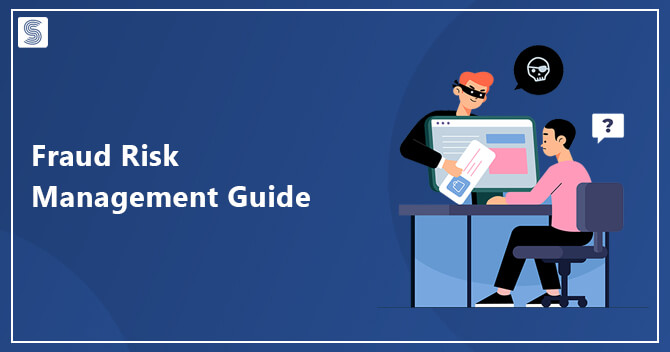Superior Fraud Risk Management Guide

Dashmeet Kaur | Updated: Apr 03, 2020 | Category: News
Over the years, technology has evolved at a fast-pace. Though the development in technology has streamlined our daily operation, perhaps it becomes a pathway for the hackers to commit their malicious acts and attack online businesses. With the growing rate of cyber crime and fraud cases in India, it is indispensable to be more vigilant and take proactive action to prevent them.
An efficient way to protect a Company from frauds is through a robust fraud risk management framework. It will enable corporate organizations to take charge, detect and respond effectively against frauds in real-time. If you also want to protect your business from fraudulent attacks, this write-up will enlighten you about Fraud Risk Management that will help you take necessary measures.
Table of Contents
What is the need for Fraud Risk Management solutions?
In recent times, various major cyber-incidents were reported in India. Even the banks and financial institutions have faced many cases related to the theft of the personal information, (DDoS) Distributed Denial of Service attacks or abuse of ATM’s.
When it comes to managing the frauds, the Companies incur several challenges.
As per a report, some of the most common challenges for the Companies include ineffective fraud risk assessment, segregation of duties and limited monitoring of the third parties. Therefore, it is substantial to upgrade the Risk Management System.
A potent fraud risk assessment tool can instantly identify and understand the nature of the risk to a business and highlight the lapses in controlling the fraud for the organization. Once the Company indentifies the risk, a plan can be formed to mitigate those risks by installing control procedures. Therefore assign members to monitor the successful implementation of the plan.
The fraud risk assessment tool must address to the issues mentioned below:
- Misappropriation of assets
- Financial and non-financial reporting
- Regulatory compliance
- Illegal acts
Components of a Fraud Risk Management System
There are primary functions of a fraud risk management framework which are as follows:
- Informs about the fraud risk: A fraud risk management tool provides complete information of various frauds like undisclosed relationships, fraudulent disbursements, theft by cyber fraud, bribery, revenue recognition, manipulation of expenses and liabilities, false employee qualification Certificate, inappropriate journal entries, improper reporting and disclosures, compliance with government regulations etc.
- Identifies existing anti-fraud controls: it points out the hitches in the internal controls in effect and curbs the impact of detective controls.
- Estimate the occurrence of a fraud: A fraud risk management tool anticipates and delivers an insight into potential fraudulent actions based on the frequency of fraud occurrence.
Common types of Frauds
There are list of frauds that usually happen in Corporate industry or in the Banking sector:
- Internal fraud- It occurs when a Director, former employee or a third party engaged by the bank either commits frauds or colludes to commit fraud.
- External fraud- Such a fraud refers to the first-party fraud or victim fraud. External fraud is committed by an entity or a person that is a former employee or a third party engaged by the bank.
- First-party fraud- It occurs when an external party like a bank customer commits a fraud against the bank.
- Victim fraud- This fraud happens when a bank client or customer is the victim of an intentional fraudulent activity.
Risk Management System that Banks can undertake
A Bank must follow the below-mentioned risk management principles:
- A Bank must have sound or solid corporate governance practices. It should emphasize upon a corporate culture of ethical standards and promote employees accountability.
- A Risk Management System of Banks must entail the policies, processes and control systems to effectively identify, monitor, measure and control fraud risks that occurs consistently.
- The Bank’s risk management framework and internal controls system should be developed to detect and prevent fraud.
- Such system must facilitate Banks to suspect frauds and appropriately respond to them.
- Bank management team must assess the possibility and impact of the potential frauds. Thus, utilize assessment results to modify the design of Risk Management System.
- Senior management and the Board of Directors should monitor and understand fraud losses to the Establishment. Therefore, employ tools that precisely compute and assess loss.
Conclusion
Read, Also:Opportunities and Challenges of FinTech – Reserve Bank of India













